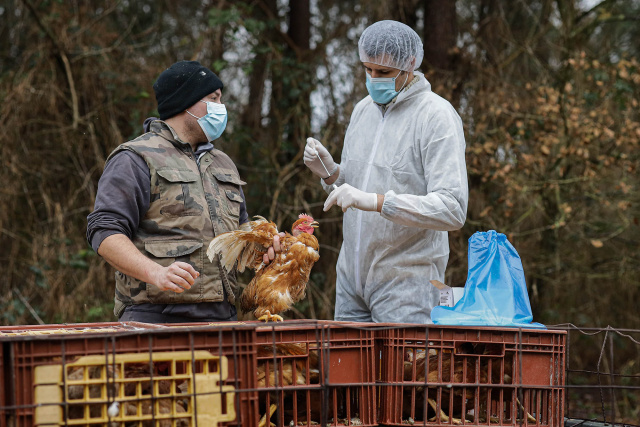The European Food Safety Agency (EFSA) has sounded the alarm on the looming threat of a large-scale bird flu pandemic, cautioning of dire consequences should the virus make the leap to human transmission.
The warning follows concerning developments in Texas, where the H5N1 strain of bird flu was detected in an individual with a history of contact with infected dairy cows.
The gravity of the situation is underscored by the geographical spread of the virus, reaching as far as Antarctica and its expanding host range, infecting various mammals.
Despite relatively low numbers of bird flu outbreaks, the evolving nature of the virus presents an escalating risk, prompting fears of heightened threats to both human health and global poultry industries.
EFSA emphasizes the potential for avian influenza A(H5N1) viruses to mutate and acquire efficient human-to-human transmission capabilities.
Urgent action is warranted, and the agency stresses the need for enhanced surveillance, rapid diagnostics, and collaborative efforts across animal and human health sectors to counter the pandemic threat.
The past year has seen 887 reported human cases of bird flu, with a staggering 52% mortality rate, underlining the urgency of proactive measures to mitigate transmission risks.
Direct contact with infected poultry, involvement in live bird markets, and exposure to contaminated environments are identified as primary risk factors for human infection.
Furthermore, EFSA highlights the potential role of wild mammals, including pets like cats, as intermediaries in virus transmission between wild birds, domestic animals, and humans.
To curb the spread of the virus, comprehensive surveillance strategies and the implementation of preventive measures, such as vaccination, are advocated.
France’s proactive stance in organizing large-scale vaccination campaigns for farmed birds is lauded as a commendable example of preemptive action against bird flu.
However, EFSA stresses the need for broader international cooperation and concerted efforts to address the evolving pandemic risk posed by avian influenza.
As the world grapples with the specter of a bird flu pandemic, EFSA’s warning serves as a stark reminder of the urgent need for vigilance and preparedness on a global scale.
The time for action is now, with collaborative efforts and proactive measures crucial in averting the potentially catastrophic consequences of a widespread outbreak.
This article was created using automation and was thoroughly edited and fact-checked by one of our editorial staff members



